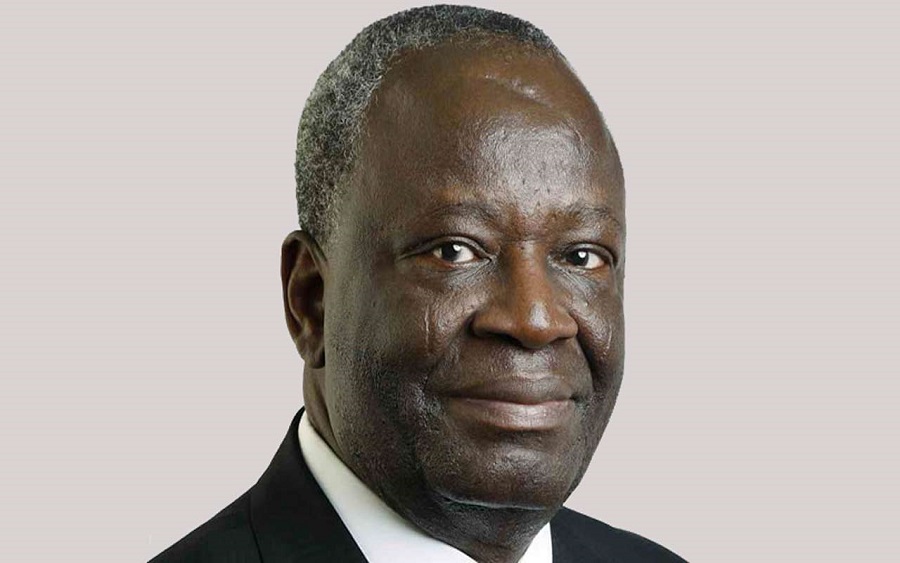Dear Prof Ibrahim Gambari
With due respect sir, I greet you and wish you well at all times as always. I am writing this to you as a citizen who is concerned about posterity as history does not end today. Not to think of posterity is to write off history and tomorrow as non-existent. I know tomorrow will come. When it does, I wish I will be noted to have stood for public universities by saying something when it was so desired. The institution of IPPIS in the Federal Civil Service and more specifically the universities do not portend a bright tomorrow for public universities in Nigeria.
I have chosen to address this letter to you for a number of reasons. The university system is your primary constituency where you worked and earned your credits from about the mid-1970s. Secondly, of the Professors on the corridor, you are the most senior because you taught my contemporaries like John Ayam and Andrew Ohwona among others. You may as well have taught the Vice President, Professor Yemi Osinbanjo as my contemporary graduate of 1979. Thirdly, you represent sound academic and diplomacy and these are significant credentials of dignity. Added to these, you are an elder statesman with bright credentials enough to earn the listening ears of any leader anywhere. Finally, as the Chief of Staff to the President, you are in complete control of the engine room of national governance. You are thus the best suited to resolve the imbroglio our universities and academics have found themselves.
To disabuse your mind, the Academic Staff Union of Universities (ASUU) has several drawbacks and has not lived up to expectations. The union has remained aloof and oblivious of the ills that have eaten deep into the universities in this country. Yes, the union has not reacted to issues of maladministration, moral scandals, pillaging of university resources, and the stench of ethnic cum religious parochialism that dominate university decisions on recruitment of staff and students and appointments to the various portfolio that are sometimes the prerogative of vice-chancellors.
Furthermore, the union has no business and right in determining how it can be paid for its labour. However, it has a right to express dissatisfaction with the ways its members are paid. Salaries grade levels and taxes are known. Why then should salaries change like the Swedish weather when work details remain far more constant than the northern star? Workers’ attempt to answer this question has the potential to generate industrial disharmony. This is where ASUU has found itself with the federal government.
With the solemn humility of a schoolchild, sir, the purpose of this letter is the issue of the Integrated Personnel Payment Information System (IPPIS). The federal government as proprietors of the universities can and should have a final say in the determination of how its workers in Ministries, Departments and Agencies (MDAs) are paid but with due respect to the laws of the land. The IPPIS, a product of public sector reform, is apparently an outsourced facility to pay workers of the federal government on very suspicious grounds. That the IPPIS has operated for 11 years and it is still having teething problems calls for worries.
The IPPIS has become a nightmare to Nigerian workers, and more specifically, the Nigerian university system. Efforts to locate the similitudes of IPPIS across the world have proved futile. Yet, heads of MDAs and supervisory boards or Councils have remained aloof except for the Committee of Vice -Chancellors. The delegation of the Committee led by Professor Yahuza Bello, then Vice-Chancellor of Bayero University Kano only got an embarrassing, if not insulting, monosyllable response from the Accountant General of the Federation (AGF). This raises the issue of the job details of our AGF. Should the AGF pay workers’ salaries or disbursed monies to agencies to pay their workers?
In the first instance, it is argued that the system is corrupt. Too much is lost to personnel costs. Thus, there is a need to save money. This argument is far from it. The universities, like all agencies, have financial management structures and procedures guided by specific laws. It will be interesting to see the internal and external audit reports that point to personnel costs as the black hole in university finances. Most interesting to see is where and how applications of rules to control the losses have failed to necessitate the installation of another system called IPPIS. Most institutions in this country have no audited accounts for several years. The employees are not responsible for this and should not be made to bear the brunt.
The poor or apparent lack of ideas of the public sector by international consultants has produced this obnoxious policy. All workers constantly receive varying salaries from month to month or do not get paid at all. Without promotion, demotion, or sack salaries go up, down or are not paid depending on the temperament of IPPIS. In the universities, staff that were enrolled are either short paid, over paid or never paid. There are enrolled staff that have received only one month’s salary from February to date. Yet, it is not the business of the IPPIS consultants with servers in New York and a substation in Gombe to listen to complaints. The one-man desk officer in charge of salaries for over 40 universities is not in the mood to listen to and work with bursary departments. The staff of MDAs are more like slaves rather than citizens in their own country as they do not know who to run to and where. Should people leave their posts from Maiduguri, Sokoto, Calabar, or even Minna to Abuja to resolve issues of over, under or non-payment? It is a horror to imagine this but pressures that come with such case can potentially open ways for corrupt inducement. It should not be so in our current dispensation.
The worst case is that of the unrepentant conscience of the society that refused to be enrolled. This group of ASUU members are sabotaging commission agents and are never to be paid a dime even if they work out their ass. They are saboteurs of “the more that enrolled, the higher the commission” philosophy of IPPIS. But even this category is to be paid based on the directive of our President, Muhammadu Buhari.
At the peak of the COVID-19 lockdown, the president directed payment of salaries of all striking university teachers. The un-enrolled members of ASUU were put on the IPPIS platform. Some were paid four months up to the month of June, some one month and many more were not paid at all. For whatever reasons, the hitherto un-enrolled were removed from the IPPIS payment platform in July. But this has already exposed the inadequacies of IPPIS as a fool and corruption proof device for managing public resources. The incident revealed to the over assuming public that anyone anywhere can be put on the IPPIS and paid salaries for as long as the operators desire. Thus, the IPPIS is not a veritable public finance management device. All claim that monies have been saved is false and dubious.
The IPPIS has not displayed the expected integrity and transparency. It has not lived up to expectations. Worse still, the operators have refused to work with bursary units of universities. The Nigerians that operate this business must be asked to tarry a little to allow the servers to cool off. The IPPIS requires review and exploration of alternatives.
Sir, the suffering of Nigerian workers including academics is not worth the IPPIS. The wasting away of Nigerian youth due to closure of universities is not worth the gains of the IPPIS. The entire cost of the IPPIS on the national economy is not worth the IPPIS. You need to put this before our principal and visitor to the universities. I sincerely crave your indulgence that you please ask for more details on the operation and operators of the IPPIS in Nigeria.
I urge you to obtain and implement a suspension of the IPPIS operations in its entirety. This makes room for a rigorous scrutiny of a project that has failed to perform for eleven years. In the interim, return payments of salaries to the MDAs. Thereafter, proceed to demand internal and external audit reports from the MDAs for a period suitable. On the basis of reports from the MDAs implement rewards and sanctions where needed. It is after all these that an effective, transparent and accountable mode of salary payment can be worked out for the country. Sir, if this turns out to be the only mark you leave behind, your name will be indelibly written in diamond for posterity.
Mohammed Bello Yunusa
Executive Secretary, Socioeconomic and Environment Advocacy Centre, Zaria

 Join Daily Trust WhatsApp Community For Quick Access To News and Happenings Around You.
Join Daily Trust WhatsApp Community For Quick Access To News and Happenings Around You.